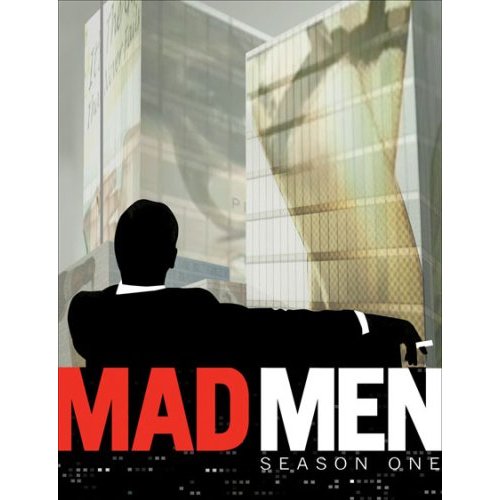Mad men: A term coined in the late 1950’s to describe the advertising executives of Madison Avenue. They coined it.
Man Men, the show, takes the viewer to another time in America. An America whose values seem to be a worlds away. This precise aspect is what transforms the production into a mildly compelling show. Even though the time setting was 50 years ago, the concepts appear so alien.
Creator Matthew Weiner, who helped write the last 3 seasons of The Sopranos and was a staff writer for Becker, is now writing about the field of marketing as it was in the 1950’s. Figures representing the practical, illustrative and research of advertising are present in the forms of Don Draper (played by Jon Hamm), Salvatore Romano (played by Bryan Batt) and Dr. Gretta Guttman (played by Gordana Rashovich), respectively. Evidently, research is the unwanted step-child of the three.
Throughout the whole pilot, every scene contained someone smoking a cigarette, if not everyone. This reflects the nature of 1950’s attitude toward tobacco use and it is quite eye opening. Restaurants, bars, houses, offices, elevators and even doctors’ offices, there is no place where smoking is not allowed. The ubiquitous nature of smoking in the 1950‘s is so bizarre to our time. A time where smoking is banned at indoor public spaces; even though these laws was only applied recently.
“Old Gold man, huh?... Can I ask you a question? Why do you smoke Old Golds?”
Don Draper is the creative director at Sterling Cooper and is having trouble coming up with a new position for big time tobacco company, Lucky Strike. This is largely due to the revelation that cigarettes cause cancer. With cigarette company’s inability to make health claims and them having to deal with an aggravated public opinion, Draper is stumped. His frustration is exacerbated by another client that he must meet with before confronting the tobacco giant. With such a big client, big money is at risk.
“Gentlemen I really thought you could do better then this. Sterling Cooper has a reputation for being innovative.”
Already stressed, Don Draper must meet with Rachel Menken, who is representing Menken’s department store. Played by Magggie Siff, she plays the “going against the odds and norms” character that is trying to revive her plummeting company. She is adverse to the ideas that are being pitched at her by Draper. A combination of previous stress, expectations towards women and Ms. Menken’s sassy attitude clouds Draper’s judgment and he blunders, causing the loss of a potential high paying customer. All because Draper will not treat her as an equal.
“Oh, I’m sorry I was expecting...” “you were expecting me to be a man? my father was too.”
Rachel Menken is already aware of the disadvantages that women face in the 1950s. Mad Men really exposes gender roles, expectations and disadvantages of the time period. As with Ms. Menken, Women are not taken seriously nor as equals; women are expected to be wives and secretaries are pushed to be more sexual. The Second being best illustrated by a pamphlet Pegge is reading at the doctors office, How to Be A Good Wife.
“Lucky Strikes, It’s Toasted”
Draper is the meeting with Lucky Strike and right when the viewer thinks that the meeting has been a disaster, the camera slowly zooms onto Draper’s blank face. Will his brilliant mind come up with something that will mitigate the situation? What happens and more importantly why, might just save the day for both Sterling Cooper and Lucky Strike.
Mad Men is a truly unique series that emulates the 1950’s in its ethics as well as appearance. The theme of advertising is following a trail that “Thank You For Not Smoking” and “Wag the Dog” have begun blazing, but brings those big screen hits to a steadily paced Television show. Although the show never becomes truly riveting, it has a constant, subtle aspect to it that keeps interest. Unfortunately the pilot episode hardly sets up future shows, instead it closes in a manor in which Days of Our Lifes would. The fresh, central theme of the 1950’s along with the barely explored industry of marketing communications is the life blood of the show, but after the novelty wears off, what will become of Mad Men? Will the show evolve as the mad men have or will it become the unwanted step child of AMC’s prime time line up?

I really like the first two parts, showing where the show's attitude gets its name. Good job analyzing the social aspects of the show it is commenting on.
ReplyDelete